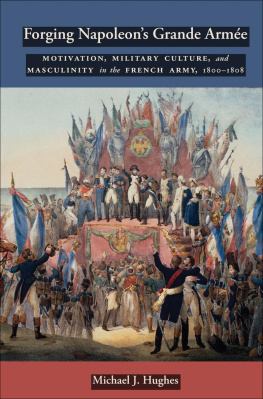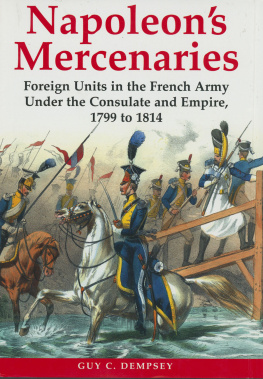First published in Great Britain by
PEN AND SWORD MILITARY
an imprint of
Pen and Sword Books Ltd
47 Church Street
Barnsley
South Yorkshire S70 2AS
Copyright Bernard Wilkin and Ren Wilkin, 2015
ISBN: 978 1 47383 373 9
PDF ISBN: 978 1 47387 846 4
EPUB ISBN: 978 1 47387 845 7
PRC ISBN: 978 1 47387 844 0
The right of Bernard Wilkin and Ren Wilkin to be identified as the authors of this work has been asserted by them in accordance with the Copyright, Designs and Patents Act 1988.
A CIP record for this book is available from the British Library.
All rights reserved. No part of this book may be reproduced or transmitted in any form or by any means, electronic or mechanical including photocopying, recording or by any information storage and retrieval system, without permission from the Publisher in writing.
Printed and bound in England by
CPI Group (UK) Ltd, Croydon, CR0 4YY
Typeset in Times by CHIC GRAPHICS
Pen & Sword Books Ltd incorporates the imprints of Pen & Sword Books Ltd incorporates the imprints of Pen & Sword Archaeology, Atlas, Aviation, Battleground, Discovery, Family History, History, Maritime, Military, Naval, Politics, Railways, Select, Social History, Transport, True Crime, Claymore Press, Frontline Books, Leo Cooper, Praetorian Press, Remember When, Seaforth Publishing and Wharncliffe.
For a complete list of Pen and Sword titles please contact
Pen and Sword Books Limited
47 Church Street, Barnsley, South Yorkshire, S70 2AS, England
E-mail:
Website: www.pen-and-sword.co.uk
Contents
List of Illustrations
Acknowledgements
The authors would like to express their thanks to a number of individuals and organisations who have assisted in the preparation of the book. We are particularly grateful to Brunot Dumont, Sbastien Dubois and the employees of the Archives Gnrales du Royaume of Belgium. We would also like to thank Cdric Istasse, Timothy Baycroft and Hannah Probert. Let us not forget Sabine Grimm and Alexis Wilkin, who have advised us. Finally, we would like to express our gratitude to Rupert Harding, from Pen & Sword Books, who believed in our project and gave constant feedback.
Introduction
Military Correspondence
Fighting for Napoleon is an attempt to let ordinary French soldiers describe their military experience in their own words. The Napoleonic Wars brought millions of men on the roads, mainly in Europe, but also in Africa, Asia and America. For the first time in European history, soldiers of all ranks left a substantial body of letters describing not only extraordinary events but also their daily lives. The rise of mass communication was a significant break with the past. Officers had described their military experiences since antiquity but the lower ranks had usually been voiceless. More educated than previous armies, the citizen-soldiers of the French Republic, later the Imperial army, changed the relationship between the military and the civilian world.
The conscripts did not write for posterity or for glory but for pragmatic reasons. Draftees leaving their homes for the depot of their regiment had little or no idea of where they were headed. In fact, they did not even know for how long they would serve. French laws were supposed to protect them; conscription was limited to four years, later increased to eight, but the constant need for men meant that there were only three ways to escape the army: death, invalidity or an exceptional favour. For example, the class of year VII of the Republic (17978) fought until at least 1814. Having a son, brother or father serving in the French army was a difficult experience. The relatives of soldiers had no way of knowing where their beloved ones were and no one to turn to for information. The army bureaucracy partially registered casualties but rarely gave lists of losses to the civilian authorities. Mutilations, wounds and captivity were often ignored in the registers. Even the depots where the regiments were stationed had difficulty keeping track of their troops. In these circumstances, correspondence was the only way for a soldier to maintain a tenuous link with his family.
Conscripts had many things to tell their families. The first act of a draftee who had just arrived to the regiment was to write to his relatives to say where he was and in which regiment he served. The following letters often described military life, battles or unfamiliar encounters in foreign countries. Most soldiers wrote to their parents or relatives but also reserved a paragraph to address the wider community. They might give news of a friend serving in the same regiment or just send their regards to a neighbour. As a result, families sometimes learnt of the death of their son from the correspondence of another soldier from the same area. The conscript also wrote to ask for money. Seeking financial assistance from his parents or a brother was almost a ritual. More rarely, soldiers wrote to their relatives to reassure them about their religious faith, their morale or their behaviour. Many more letters were sent from the depot or when serving in France than on campaign. Physical and mental tiredness, danger and the lack of time, were probably to blame.
The Napoleonic armies relied on the efficient postal system of the French Empire to deliver their mail. Soldiers and civilians either put a stamp on the letter or expected the addressee to pay for the delivery. Even prisoners of war in Britain had the opportunity to correspond with their families. The lack of literacy made the task of the postal system harder. In many cases, the addresses were so poorly spelled that the correspondence went through various departments before being delivered to the right place. There are several examples of conscripts complaining about their letters being lost during the journey. Soldiers often expected their correspondence to include money as it was possible to fill and send a postal order from the post office. This payment method was guaranteed in case of theft or loss and was therefore far safer than the practice of putting coins in the envelope.
The considerable number of letters written during this time raises the question of literacy. The Napoleonic Wars preceded the advent of mass education, beginning in the middle of the nineteenth century. It is almost impossible to determine the precise number of illiterate soldiers in the French army at the beginning of the nineteenth century. However, a study of the replacement contracts drafted in the Ourthe department shows that only 38 per cent of the peasants, labourers and artisans, the poorest and most common professions, knew how to write. On the other hand, almost all the men from wealthier families had some literary skills. Most soldiers, even the illiterate, kept in touch with their relatives. Educated friends or non-commissioned officers usually helped those who could not write. In a few cases, these transcribers even identified themselves at the bottom of the letters.
The historical interest of these letters has little in common with the By contrast, the letters found in this book were written by humble men. Their authors did not contact their families to talk about strategy and politics or to polish their image for the generations to come. The letter was an intimate object aimed at their relatives, their friends and their community. This correspondence offers unusual details about daily life in the Imperial army and even in some cases contradicts our vision of the French military. These men gave valuable insights about their occasional unwillingness to serve France, their revolt at having to pay for their uniform and equipment, or even their surprise at the good treatment they received while being held captive in Britain.
Despite their interest, historians must not always take these letters at face value. Soldiers exaggerated or even lied for various reasons. They might have been bragging to impress someone or they might have been afraid of censorship. The men kept silent about a range of topics, like rape or theft, to avoid shocking deeply Catholic communities. Soldiers had trouble remembering the names of battles, made up confrontations with the enemy and always exaggerated the number of casualties inflicted by the French army. They had no sense of chronology and sometimes wrote a single letter over a period of six months. However lies, omissions and imprecision tell us as much about the psychology of the French soldier as the truth. In addition the letters offer a counter-point to the idealised vision of the
Next page












